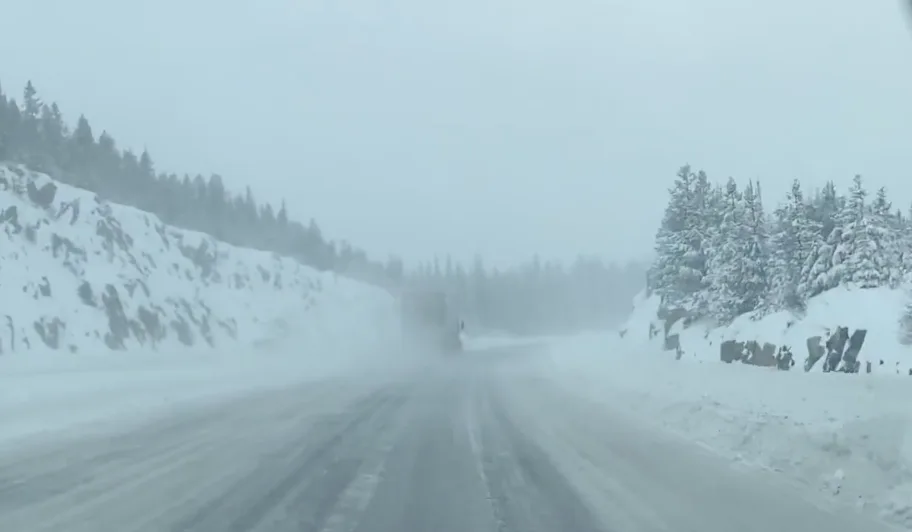
B.C. at risk of 'naturally occurring avalanches throughout the week'
After a blast of late-winter snow across much of southern B.C., forecasters say increased avalanche risks at high elevations are expected to persist through the week.
A recent storm system brought up to 25 centimetres of snowfall in areas north and east of Hope, prompting Avalanche Canada to raise its risk to considerable to high in those regions and on the South Coast.
Forecasters said conditions mean there will likely be naturally occurring avalanches throughout the week.
"Typically when a lot of new snow falls, it takes several hours or even days to settle and gain strength, so we quite often see that fresh snow falling down slope easily until it's had a period to sit and bond over time," said Simon Horton, senior forecaster with Avalanche Canada.
"The areas that might be impacted the most are those that currently have weak snow on the ground already, and that's many parts of the interior ranges specifically where that combination of new snow and weak snow on the ground could produce particularly large avalanches," he said.
With spring breaks in effect across B.C. public schools, resorts can expect bigger crowds. Horton warns those taking to the backcountry that March can be a particularly dangerous time on mountains, given the combination of deep snowpacks and warming temperatures.
"You combine that with longer days and more sunshine, it just becomes a more complex time to understand what's going on in the mountains, and it's important to respect that and maybe be a bit more conservative, even on a sunny day," he said. "That warmth of the sun can add up to the avalanche hazard."
WATCH: Peak avalanche danger comes as spring approaches
B.C. has experienced a particularly deadly season with conditions resembling the 2003 season, which saw 29 deaths.
Twelve people have died in six separate avalanches around southern B.C. since January.
RELATED: Deadly B.C. avalanche highlights heli-skiing risk, but industry stresses safety
Road conditions
With snow expected to ease on Tuesday, Environment Canada warns that weather in the mountains can change suddenly, resulting in hazardous driving conditions.
A new snowfall warning is in place for the Trans-Canada Highway between Eagle Pass and Rogers Pass as heavy snow continues near the summit.
Warnings have lifted for the Coquihalla Highway between Hope and Merritt, Highway 3 from Hope to Princeton via Allison Pass, and the Paulson Summit to Kootenay Pass.
WATCH: Fact or fiction? Could your voice trigger start an avalanche?
This article was originally written for CBC News.
Thumbnail credit: Jaclyn Whittal/The Weather Network. File photo of the Coquihalla Highway.









